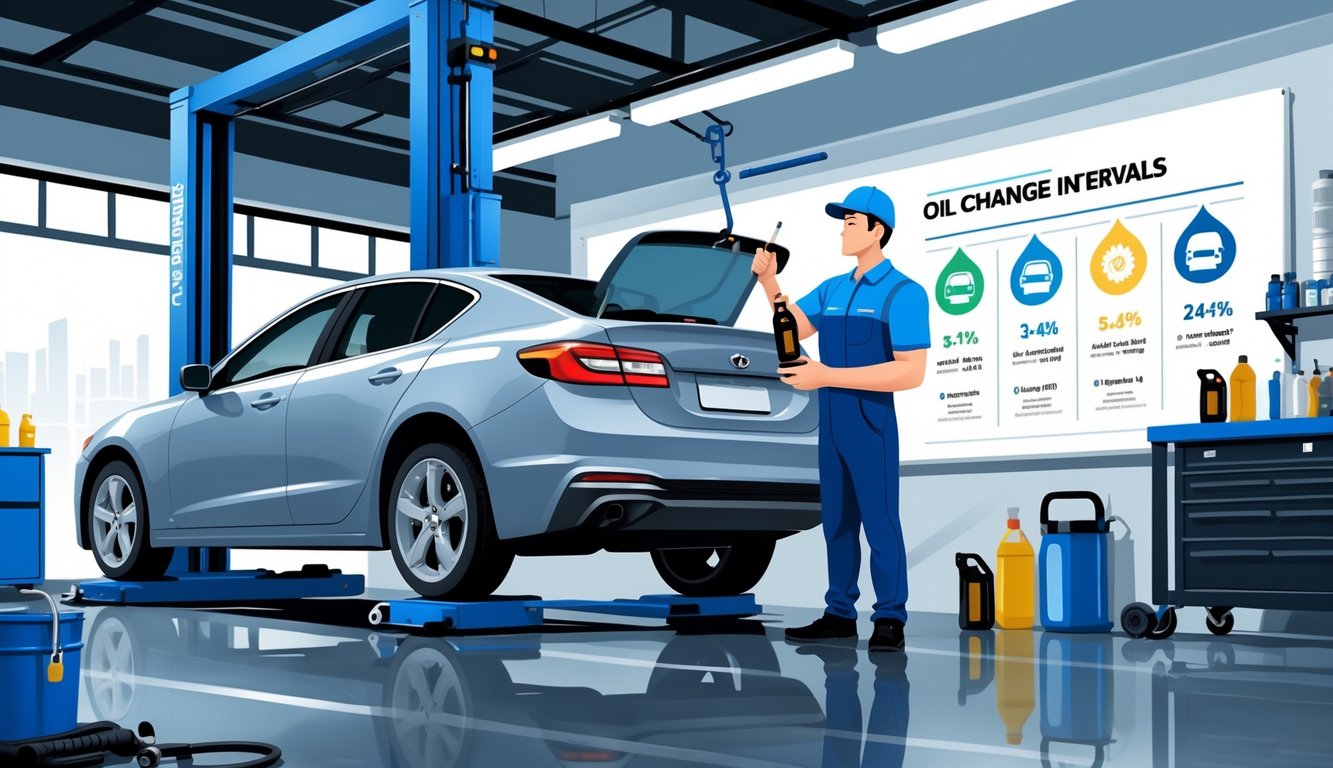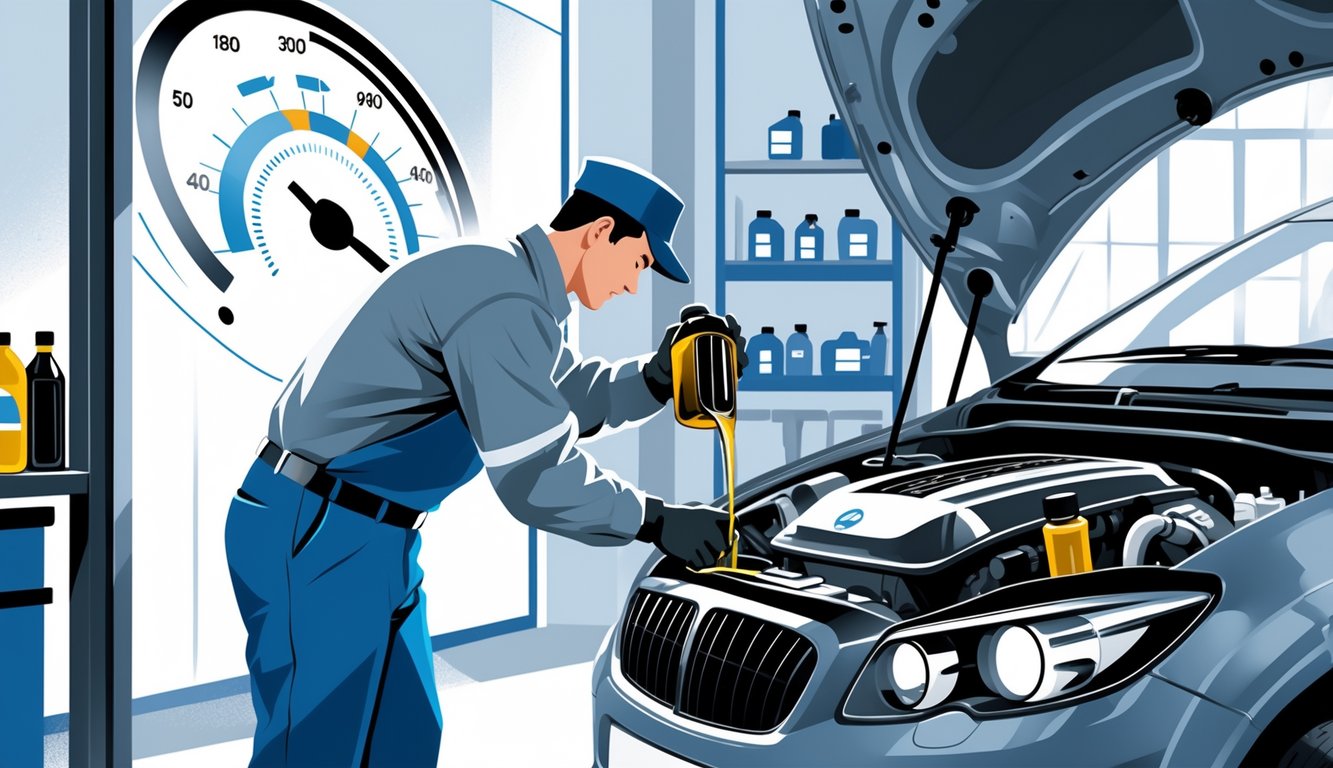
How Driving Habits Impact Oil Change Frequency
Honestly, I could argue oil intervals until my car turns into a planter. The mechanics I trust say it’s not just mileage—it’s all the weird stuff: cold starts, endless red lights, highways you never see. How and where you drive beats whatever’s on the sticker.
Short Trips and Engine Wear
Quick errands in winter, engine barely warms up, oil never gets thin enough to do its job. I skimmed an SAE report last year that called out “excess moisture from short trips”—not glamorous, but it stuck with me. My dealer’s tech once told me, “Short trips are the silent killer unless you’re in a desert,” which, okay, but who’s driving to the desert for groceries?
People online love to argue that synthetic oil saves short-trip drivers; this summary says not really. You might delay sludge, but you don’t escape it. Full synthetic handles heat better, but if the engine never gets hot enough, sludge still wins. Funny how the manual barely mentions this, but every independent expert won’t shut up about it.
City Traffic Versus Highway Driving
City versus highway—don’t get me started. Some folks act like a 50/50 split is magic. It’s not. Stop-and-go traffic, idling, blasting the A/C, oil temp all over the place—this is what drops your interval from 7,500 to 4,000 miles, and your car’s computer barely notices. AAA says city drivers might need changes every 3,000 miles if you’re stuck in “severe” conditions.
Oddly enough, highway driving barely creates the kind of sludge city trips do, even if you’re speeding. Clausen Automotive’s chart (worth a peek if you’re bored) proves it: steady RPM, higher speeds, less wear. My friend says her oil looked perfect after a 1,000-mile road trip. Maybe that’s why long-haul trucks run forever—no city traffic, no drama, just oil doing what oil does.
Mileage-Based Oil Change Guidelines

Changing oil isn’t some universal fix, and nobody agrees on the “right” time. I hate reading the owner’s manual (who doesn’t?), but every expert yells about sticking to intervals. Then life happens and you just, I dunno, forget. Nobody’s really on the same schedule unless they’re obsessed, and honestly, most people just wing it.
5,000 to 7,500 Miles Explained
Alright, what’s with this 5,000 to 7,500 mile thing? It’s like the no-man’s-land of oil changes—nobody’s really sure, everyone’s got an opinion, and half the time, I’m just flipping a coin between “eh, it’s fine” and “oh crap, am I overdue?” AAA’s got these latest rules that shove most newer cars smack into that 5,000–7,500 mile window for oil changes. Sounds reasonable, unless you’re haunted by your dad’s “3,000 or else” paranoia (I still hear it in my head, honestly). Automakers? They’re saying, yeah, conventional oil can actually make it to 5K-7.5K, unless you’re rallying through dust storms or living in a sauna. Or, you know, if you read every single panicked forum post and spiral.
And I swear, nobody talks about synthetic oil enough. I use full synthetic because, honestly, I just want to avoid dealership drama and it lets me push things a little further before I even notice anything’s up. But let’s be real, most people just hit 7,500, see the “change oil” light, and feel guilty until they cave. Newsweek’s got a whole rundown that basically says 5K–7.5K is the sweet spot for most people—unless you’re out there drag racing or stuck in stop-and-go hell every day.
10,000 Miles: Is It Too Long?
Ever met a dealership tech who didn’t roll their eyes at 10,000-mile oil changes? I haven’t. Stickers on the windshield say one thing, but every mechanic I know gets twitchy if you mention going that long. Synthetic blends claim it’s fine, but honestly, I start hearing weird little valvetrain noises at 9,000 miles—maybe it’s in my head, maybe not.
Sure, manufacturers have some logic behind calling 10K okay—new engine, full synthetic, you live in a climate-controlled bubble, fine. But Car and Driver spells it out: 10,000 miles only works if you’re running the best oil, under perfect conditions, which—come on—isn’t real life. I know people who brag about 10K intervals and claim their engines are “like new.” Are they lucky, or just ignoring the weird noises? No clue. Every time I try stretching it, I end up checking my wiper fluid instead and forgetting why I opened the hood in the first place.
